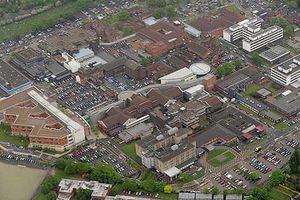TB patient left on open ward
A patient suffering from highly-contagious Tuberculosis was left on an open ward at Wolverhampton's New Cross Hospital for six days.

A patient suffering from highly-contagious Tuberculosis was left on an open ward at Wolverhampton's New Cross Hospital for six days, a report into "serious untoward incidents" at the site revealed today.
An investigation has been launched to trace anybody who came into contact with the patient last month, in a bid to stop the spread of infection.
The case is one of eight to be highlighted in the report by the Royal Wolverhampton Hospitals NHS Trust, which have happened at the Wednesfield hospital since December.
The report outlines how an 82-year-old woman who suffered a "massive" intestinal bleed and died had not been given appropriate care. A chart used to mark vital checks, such as her temperature and pulse, had not been calculated correctly for 12 hours, according to the report. Staff also failed to give her an emergency stomach examination, called an endoscopy, which could have alerted them to the "potentially treatable" condition.
A large outbreak of norovirus which closed wards at the start of the year is also included in the report.
It admits current trust policy is "inadequate" for dealing with large outbreaks of the superbug and highlights the fact that some staff returned to work when they had not been symptom-free for the recommended 48 hours. Cheryl Etches, director of nursing and midwifery, today said action plans were being drawn up to ensure similar mistakes were not made in the future. "We have a policy of being open and honest because we can't change what we don't acknowledge," she added.
Three patients died after catching the deadly clostridium difficile stomach bug at the hospital this year. The highly infectious disease, which is often caused by use of antibiotics, was identified as a cause of death on all three patient's death certificates.
The report also outlines details of two complaints received from the families of patients who died from heart attacks. One complaint blames delayed treatment for the death, while an investigation has shown alternative treatment "would have made no difference to the outcome" in the other.





